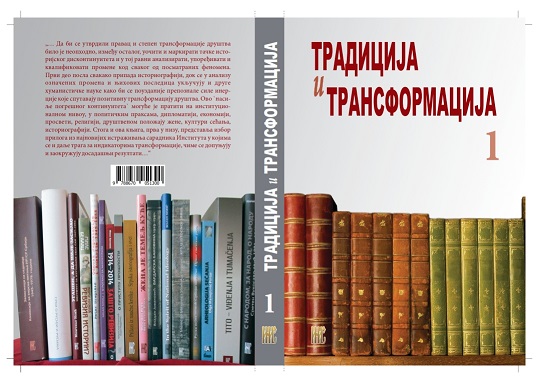Бакшиш и државна интервенција. Чиновничка корупција у Краљевини СХС
Small Bribes and State Intervention. The Corruption in the State Administration of the Kingdom of Serbs, Croats and Slovenes
Author(s): Aleksandar R. Miletić
Subject(s): Public Administration, Political history, Interwar Period (1920 - 1939), Human Resources in Economy, Corruption - Transparency - Anti-Corruption
Published by: Institut za noviju istoriju Srbije
Keywords: bribery; abuse; trade policy; housing relations; emigration policy;
Summary/Abstract: A general increase in corruption in public administration was one of the “legacies” left after the Great War. The unprecedented hardships of daily life and the general impoverishment affected all strata of European societies during the war. This was particularly true for the territories under the control of the Central Powers which were cut off from their traditional sources of raw materials and food during the war. The misery of malnutrition and disease reduced human preoccupations to concerns for essential biological needs and mere survival. In many ways, this led to the erosion of basic presumptions of honesty and morality among the general public level, and state personnel were not immune from this general trend. On the contrary, their position became complicated because of the new roles assumed by the state for the control over the wartime economy and society. The numerous new responsibilities and areas of influence demanded that state officials at all echelons of the administration be entrusted with expanded powers. On the other hand, their average real income was declining ever more from its prewar level. The low–paid national bureaucracies deviated greatly from the ideal rational bureaucracy imagined by Max Weber. According to the research of Yugoslav/Croatian economist Mijo Mirković, during the period between 1913 and 1925, the Yugoslav state employees’ earnings were reduced by more than 50 percent. To what extent did this war-related and prolonged degradation affect the “moral infrastructure” of Yugoslav state personnel? What was the level of the administrative performance and efficiency that might have been expected from low–paid personnel? This article attempts to answer these questions by examining administrative performance of Yugoslav state personnel while it was engaged in state interventionist policies in domains of control over housing relations, over foreign trade and emigration process. In each of these domains of public affairs the state agenda was compromised by the general system of misconduct and corruption that occurred in the state administration. Low-level corruption and abuses started to appear as state officials gained the right to make arbitrary decisions on each individual problem or application. In the field of housing policy, the requisitioning practices proved to be nothing more than a cover-up for extortion and different schemes of misuse and corruption by state officials. In domain of the trade controls, the license trade regime became notorious for the wide-spread corruption involved in its procedures and conduct. The control over emigration affairs ended up in an elaborated system of extortion of applicants. Instead of serving and protecting the interests of citizens, the poorly paid administrative personnel in Belgrade tried to improve their own material position by abusing their powers. State competencies were not only violated but they also ended up serving the private interests of state employees. In view of this outcome, one wonders whether citizens might not have been better off if the state had not intervened in these affairs at all. Study of corruption in the Yugoslav public administration provides a good insight into the basic administrative limits of its “human infrastructure”. This should be taken into account when considering (possible) outcomes and concrete results of the Yugoslav state policy in the interwar period.
Book: Традиција и трансформација. Политичке и друштвене промене у Србији и Југославији у 20. веку
- Page Range: 219-236
- Page Count: 18
- Publication Year: 2015
- Language: Serbian
- Content File-PDF

